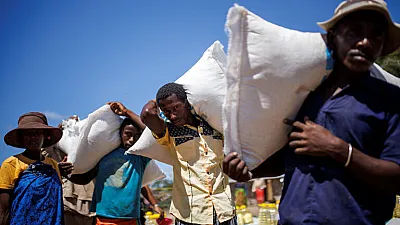Let's create continuous conversations about climate change education: Spreading the Sediment of Science!
Horn of Africa Faces Drought, Potential Famine
April 18, 2022

Hundreds of thousands of people in Somalia and South Sudan could face a famine. Without action, up to 6 million could suffer severe food shortages, United Nations (UN) agencies warn.
A drought and soaring world food prices have caused food insecurity in the two countries. The Russia-Ukraine war has played a role. The war has caused prices for staple grains and edible oils to increase. Global harvests were already down. So, prices are at a 10-year high. Countries in Africa, the Balkans, and the Middle East depend on wheat from Russia and Ukraine. The war has made it hard to farm there.
In addition, the East African region is facing its driest conditions in more than 40 years. The past three rainy seasons have failed to produce enough water for farming. The region could suffer a severe drought. Officials predict the needed rains won’t come again this year.
So far, the UN’s humanitarian response plan for the region is running short on money. That's because other areas, such as Ukraine, also need a lot of aid. "This is a year of unprecedented humanitarian needs and hunger, but I implore the world not to turn its back on Somalia. Millions of lives are at stake," a UN official told Reuters.
Somalia suffered a drought in 2011. 260,000 people died. A civil war in 1992 led to famine. 300,000 people died then. South Sudan faced famine in 2017. Due to global action, though, it was reduced to a state of severe food insecurity.
Photo from Reuters.





